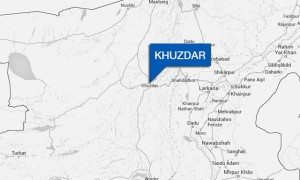MANHATTAN: Pakistan has called for flexibility to achieve the required consensus among all United Nations’ member states to break the impasse in the long-running negotiations to restructure the UN Security Council.
“The principle and the single most important requirement is flexibility on part of all groups and all member states, to try to accommodate each others’ positions,” Ambassador Munir Akram said, as the Inter-Governmental Negotiations (IGN) aimed at making the 15-member Council more effective, representative and accountable, resumed on Monday.
“It is only by building consensus that we can breathe new life in the IGN process,” the Pakistani envoy told delegates, amid continuing campaign by the so-called Group of four — India, Brazil, Germany and Japan — for permanent seats at UN’s high table.
Ambassador Akram said that Pakistan, which is a member of the Uniting for Consensus (UfC) group, remains firmly opposed to additional permanent members in an enlarged Security Council, but seeks expansion in the two-year non-permanent category.
“We do not believe in enlarging the ‘centers of privilege’ through the permanent membership of the Security Council, which was the subject of objection by many members,” he said, noting that they had caused major impediment to efficient functioning and decision-making in the Council.
“Expansion in the permanent membership would not be a solution to the legitimacy and effectiveness of the Security Council,” the Pakistan envoy said.
“As we have said before, the problem cannot be the solution.”
The UfC group, he added, was committed to an equitable enlargement of the Security Council, in particular to enlarging the representation of those regions, which are underrepresented and have been historically discriminated against during the course of history.
Full-scale negotiations to reform the Security Council began in the General Assembly in February 2009 on five key areas — the categories of membership, the question of veto, regional representation, size of an enlarged Security Council, and working methods of the council and its relationship with the General Assembly.
Despite a general agreement on enlarging the Council, as part of the UN reform process, member states remain divided over the details.
The G-4 have shown no flexibility in their push for expanding the Council by 10 seats, with six additional permanent and four non-permanent members.
On the other hand, the UfC group has proposed a new category of members — not permanent members — with longer duration in terms and a possibility to get re-elected.
The Security Council is currently composed of five permanent members — Britain, China, France, Russia and the United States — and 10 non-permanent members elected to serve for two years.
In his remarks, Ambassador Akram underscored the need for consensus among the membership of the UN General Assembly in order to have the ability to affect the Charter amendment, which is required to be adopted by the large majority as well as by all permanent members of the Security Council, to accomplish the reform.
On its part, the Pakistani envoy said, the UfC, had demonstrated considerable flexibility, pointing out that the group had presented proposals and offered ideas to achieve consensus.
“Unfortunately,”, he said, “we have not seen a similar spirit of flexibility on behalf of certain other groups.”
“The UfC has displayed and will continue to work in a spirit of compromise and consensus.”
Amid the existing divergences in the approach to reshape the Security Council, Ambassador Akram urged IGN’s co-chairs — ambassadors of Poland and Qatar — to broaden the areas of convergence. In this regard, he noted considerable convergence in two issues — the relationship between the Security Council and the General Assembly and the size and working methods of the Security Council.
He said there was also agreement on equitably enhancing the representation of under-represented regions, especially from Africa, Asia and Latin America and for enhancing transparency and inclusiveness in the Security Council’s work and decision-making.
In addition, he said there was convergence that the size of an enlarged Council should be around 25 members, with no opposition to the its expansion in the non-permanent category.
“All these are important building blocks towards a comprehensive consensus on Security Council Reform,” the Pakistani envoy said.
He hoped these convergences would be reflected in an updated paper from the co-chairs, saying, “This is the text we are looking forward to.”
Newspakistan.tv | YouTube Channel





